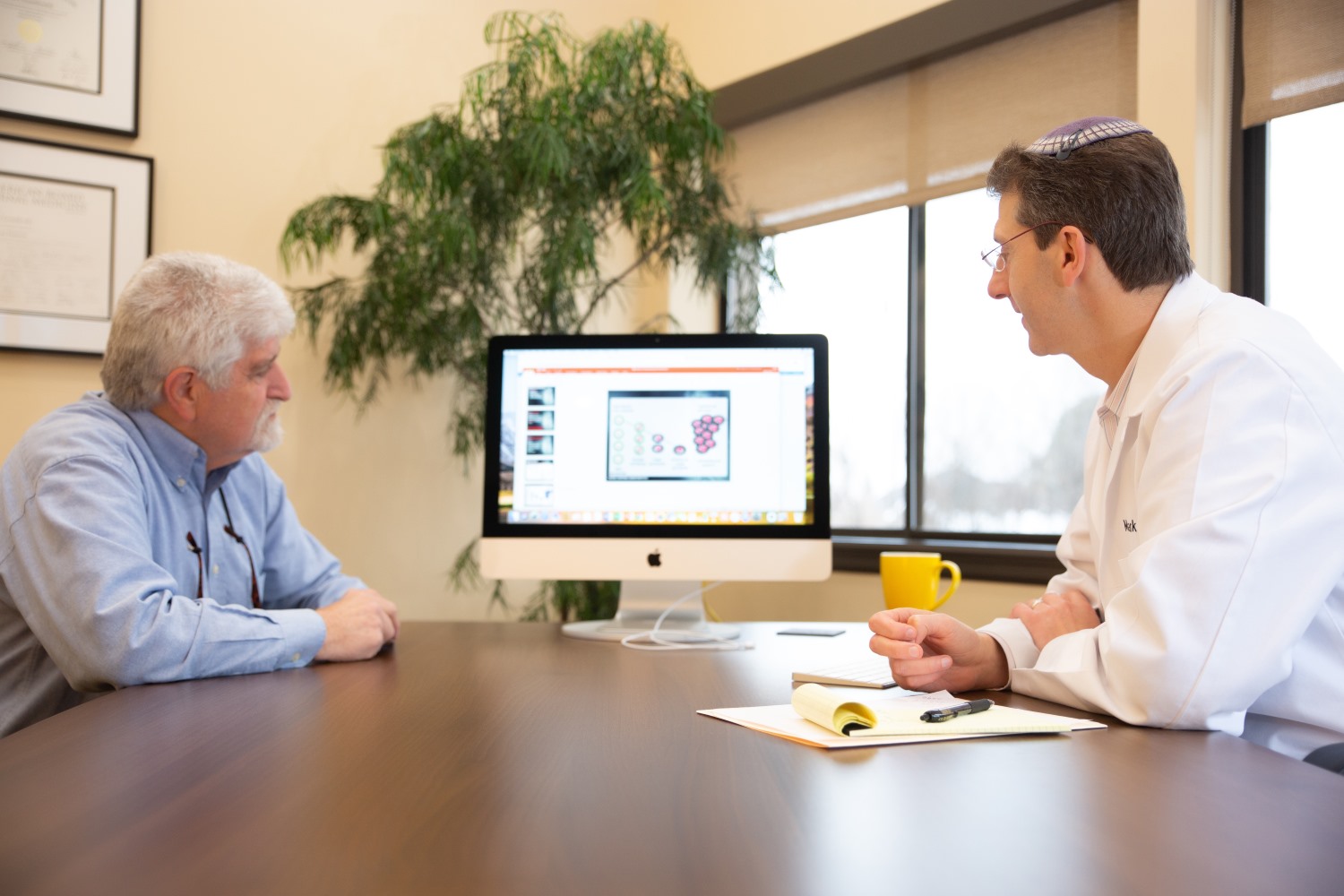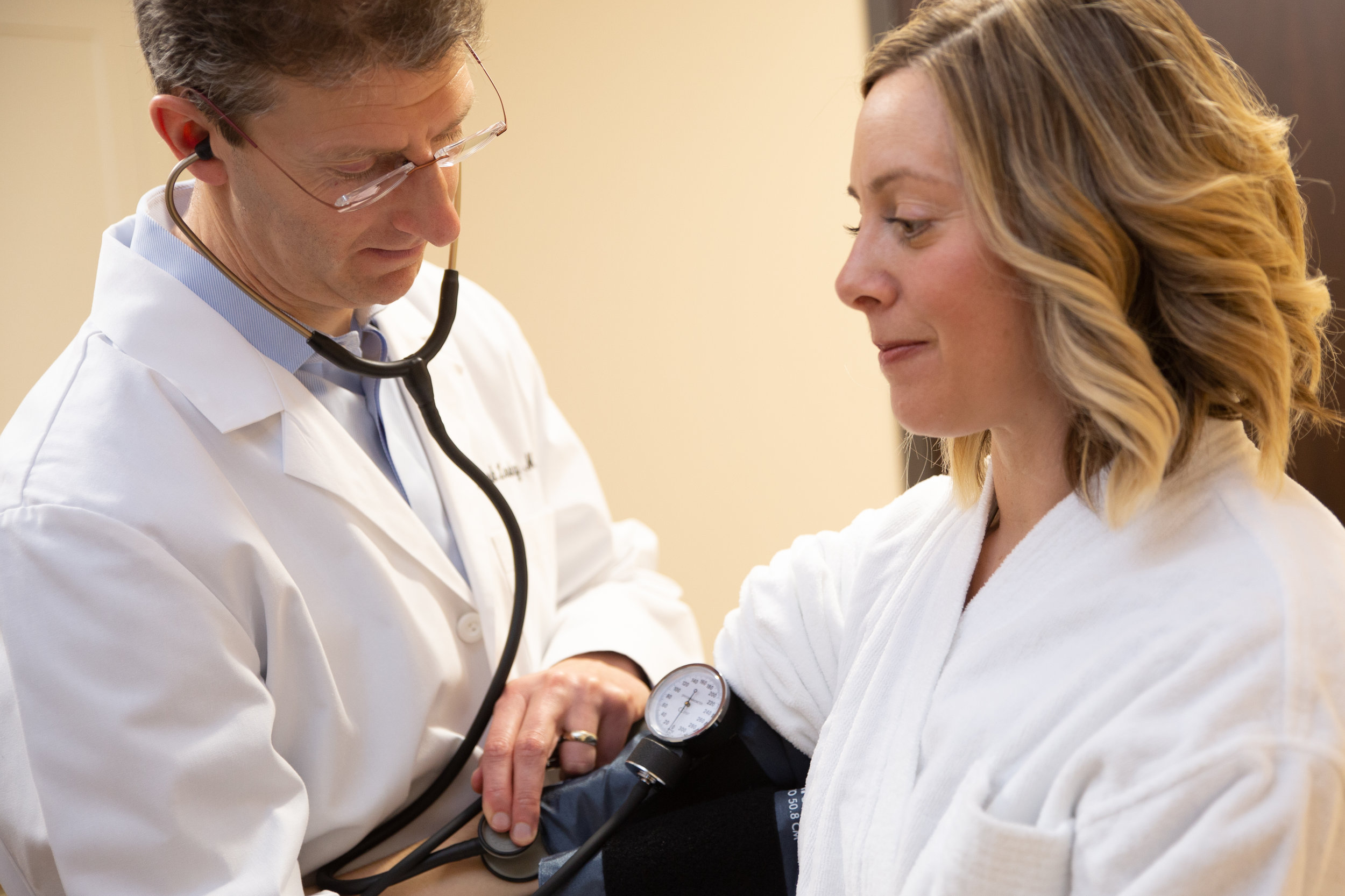
Why Screen for Colorectal Cancer?
Colorectal cancer includes cancers affecting the large bowel (both colon and rectum), is among the 5 most common cancers in the United States, and the #1 killer among cancers for Americans under 49. Recently, updated guidelines recommend starting colorectal cancer screening at age 45, and even earlier for those at higher risk. Navigating the complexities of colon cancer screening and personalizing recommendations is what Dr. Levandovsky does best. Dr. Levandovsky MD utilizes his 20 years of leading cancer departments to work hands-on with patients to provide full individualized guidance for cutting edge screening, prevention and treatment of colorectal cancer, no matter the complexity.
Are You at Risk For Colon Cancer?
14X More Effective
With screening and detection as our specialty, our practice is 14X more effective at early cancer detection compared to a typical primary care. We are able to accomplish this feat by leaning on Dr. Levandovsky’s 20 years of oncology expertise to hyper-focus on each patient’s personalized risk, and then utilizing the very latest technologies available for each cancer.
Colorectal cancer does have specific screening guidelines, one of which just changed the recommended age of screening from 50 to 45 years of age. Colon cancer guidelines include common and well-known practices such as colonoscopies and stool testing for blood, as well as new modalities including DNA/molecular testing such as Cologuard and liquid biopsies. Based on one’s genetic and personal risk of colon cancer, we also dive into the use of AI-enhanced colonoscopies, capsule endoscopies and gut microbiome analysis for improved screening/detection.
Our Approach
Step 1: Understand Your Personal Risk
We are all unique and come with our own personal health history, challenges, and risk factors that are unique to us. The worst thing a doctor could do is to screen, treat or approach every individual in the same, mediocre way. We emphasize the fundamentally different approach by examining each person’s individual risk using proven technologies and methodologies prior to approaching any form of medical screening or medicine.
Step 2: Personalized Assessment & Blood Work
Following an extensive collection of one’s personal medical history and risk, we seek to obtain as much personal genetic, biological, and historical data about each patient as we can. We then move forward with extensive blood work and the very latest medical technologies available to us to build a complete picture about the individual in front of us. By the time we’re done, we have a complete understanding of each patient’s unique health portrait with our specific goals and steps necessary of achieving them.
Step 3: Move Forward with Specialized Testing
After a careful and deep collection of health and medical-risk history, we can fine-tailor a unique and personalized approach using advanced screenings and more advanced specialized screenings and biopsies as needed. This is going to provide us with 90%+ confidence in our results by utilizing the right screening modalities for each respective individual.
Step 4: Personalized Treatment & Follow-up Plan
Whether or not a cancer is found, we’re committed to providing an unprecedented level of healthcare that navigates a patient through different treatments and, ideally, prevents cancer from ever forming.
*Compared to the average traditional family or internal medicine practice.
Concierge Total Cancer Care Program at PMCC Denver
Preventive Medicine and Cancer Care in Denver, CO is a concierge medical practice that is focused on providing you with high quality, comprehensive, and personalized care; emphasizing your unique and personalized health needs. Dr. Mark Levandovsky, MD has developed unique cancer prevention, screening, and treatment programs that are designed with YOU in mind.





